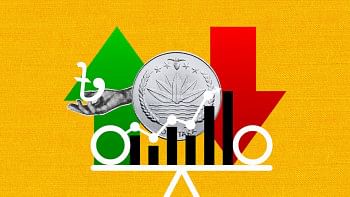Close up 1 and democracy
The other day I was watching Close up 1, the talent hunt programme for singers that I very enthusiastically watch every year. The arrangement is satisfactory, for it accommodated public opinion with that of the experts. But I was dumfounded when I saw a singer, Tasmih, who in the opinion of the judges scored the highest while in the opinion of the viewers she scored poorly. It was the opposite for her competitor Robin who scored substantially less than Tasmih but received tremendous compassionate support of the viewers. Earlier, Robin had very wisely reminded the viewers not to vote for him just as a matter of sympathy for his being lame but to vote for him considering his performance. Viewers were not to heed to the appeal and the viewers' love for Robin overrode his appeal. Ultimately, the outstanding talent of Tasmih was subdued by the emotion of the viewers. This is an inherent flaw of democracy that nothing can be done against the popular opinion. However, in this talent hunt programme, I suppose measures were taken to weigh everything carefully to search out for the best. This reminded me of the cardinal bottom line of democracy that in democracy majority must be granted and also the fact that democracy counts head equally not actually what is there in each and every head. Yet, in many countries arrangement is made to elect the best of the candidates. When in the developed countries most people are capable of making sound decisions regarding competence of a candidate, the situation is not the same in poor countries where majority of the population are illiterate. In imitating the developed countries we find in most cases that we elect the wrong candidates. Despite the unprecedented caution on the part of the administration in the recent local election, there was no significant change. In line with this, it can be presumed that in the parliamentary election also, after two years of preparation, no significant change shall occur. I think our emerging civic society should contemplate as to how to develop a democratic system by which we shall be able to elect the best candidate. No one should feel complacent that the American system is foolproof; it too needs periodic reform to address the time.

 For all latest news, follow The Daily Star's Google News channel.
For all latest news, follow The Daily Star's Google News channel. 



Comments